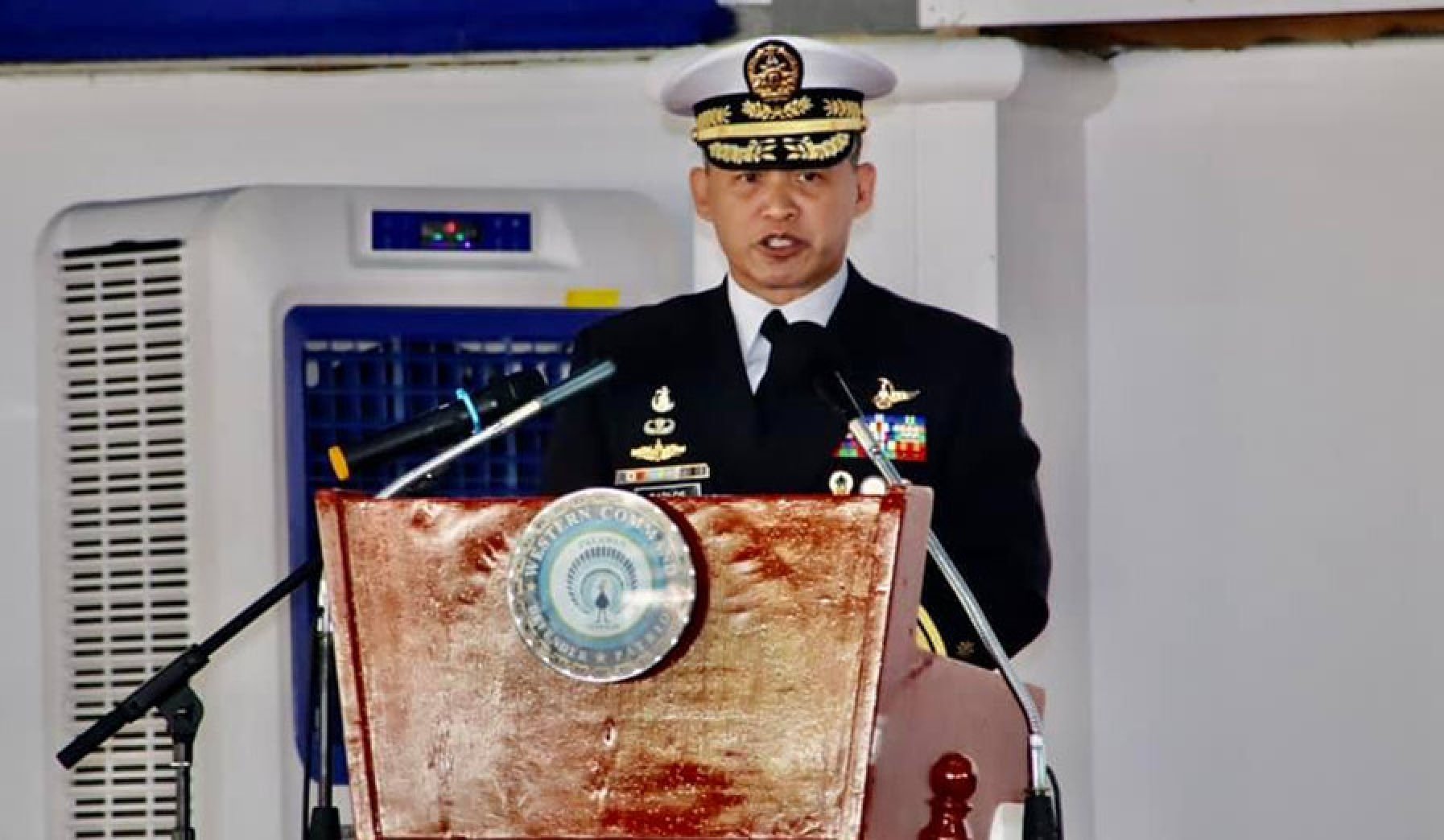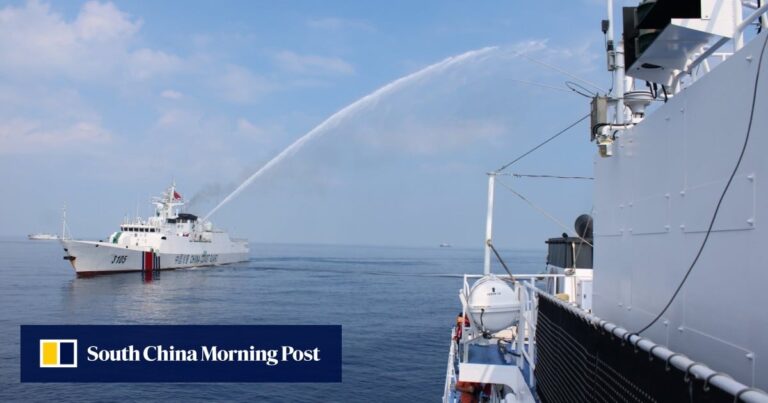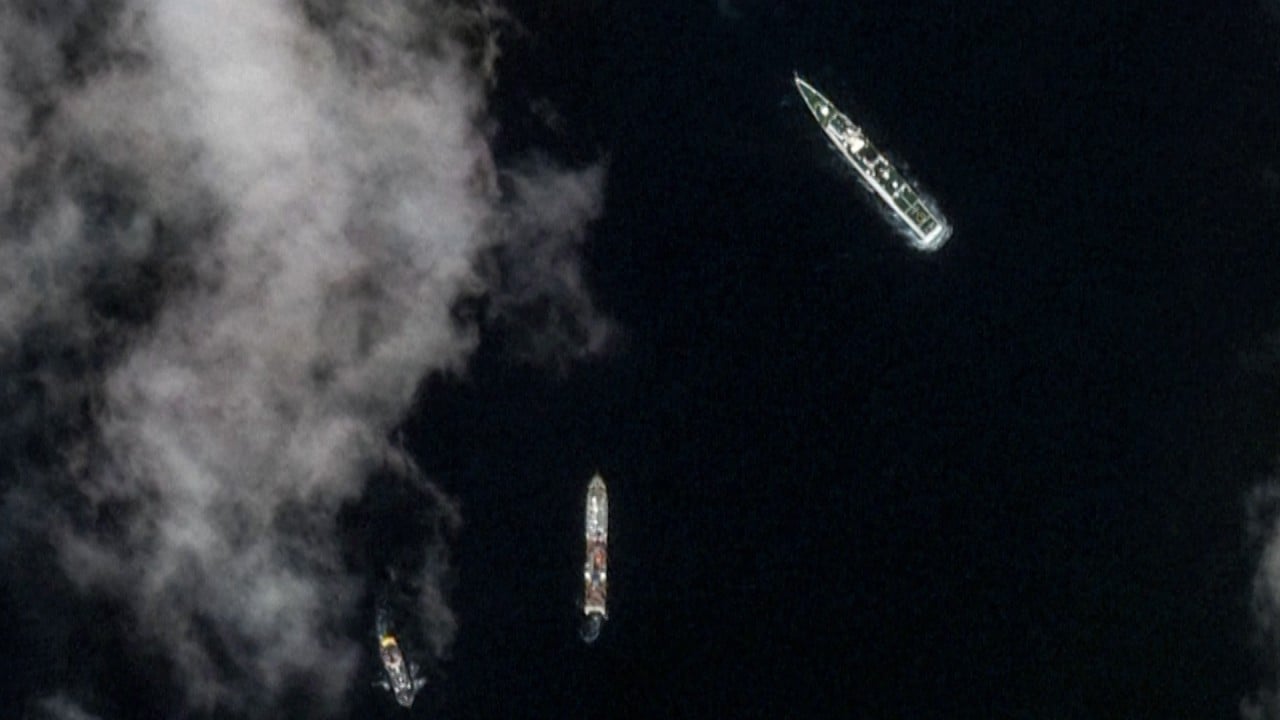It was not disclosed who Carlos was talking to during the call.
However, in a statement released late Wednesday night, the Armed Forces of the Philippines said the alleged recordings were a “malicious influence operation by the Chinese Communist Party.”
“Transcripts can be easily fabricated and audio recordings can also be manufactured using deepfakes. These reports only [aim] “This is to distract from the Chinese Coast Guard’s ongoing aggressive actions in the West Philippine Sea,” said Philippine Armed Forces Chief of Staff Romeo Browner.

It is unusual for China to reveal the details of diplomatic negotiations, especially those held in private.
Ding Duo, an associate researcher at the National Institute for South China Sea Research, a think tank based in southern Hainan province, said the revelations showed that the Chinese government was deeply dissatisfied.
“The Philippines has broken its promise to China, and this has seriously damaged the political trust between the two countries,” Ding said.
“The Philippines appears to have no desire to cooperate with China to manage maritime disputes.
“This has seriously damaged relations between the two countries.”
He said some diplomatic channels remain open between the two countries, but high-level exchanges have largely been put on hold since tensions escalated last year. “I don’t think there is any political trust between the two countries.”
Hu Bo, director of the Beijing-based think tank South China Sea Research Initiative, agreed.
“The Philippines has denied any agreements with China, including those signed by the previous administration, and that is forcing China to respond in some way,” Hu said.
Colin Koh, a senior fellow at Singapore’s S. Rajaratnam School of International Studies, said the threat was a response to Beijing’s “aggressive transparency” strategy to counter Manila’s “aggressive transparency” strategy to publicize maritime accidents with China. He said it could be part of his strategy.
“This is effective and puts China at a disadvantage, so the Chinese government needs to take back the initiative,” he said.
After a clash near the disputed Scarborough Shoal on April 30, Manila accused Beijing of conducting “dangerous operations and obstruction” and reinstalling a fence near the outcrop.
Meanwhile, the Chinese government has cited a 2016 “gentleman’s agreement” with then-President Rodrigo Duterte that says Filipino fishermen can fish near shallow waters but must never enter lagoons. accused of “crossing a line that should not be crossed.”
On Saturday, the Chinese embassy again released details of a “new model” including procedures for replenishment operations at the disputed Second Thomas Shoal.
According to news portal site Inquirer.net, Chinese officials also said in 2013 that then-Secretary of Defense Voltaire Gazmin told then-Chinese Ambassador Ma Keqing that the Philippines “will not build new structures. “We will not violate the agreement,” he was quoted as saying.
But Koh, who is in Singapore, had doubts about whether Beijing’s strategy would work. He said the Chinese government is on the defensive and it is not clear that there is an independent way to verify such recordings.
“On the other hand, in China it is quite normative to accept such agreements, and that probably explains it.” [it]” said Ms. Ko.


